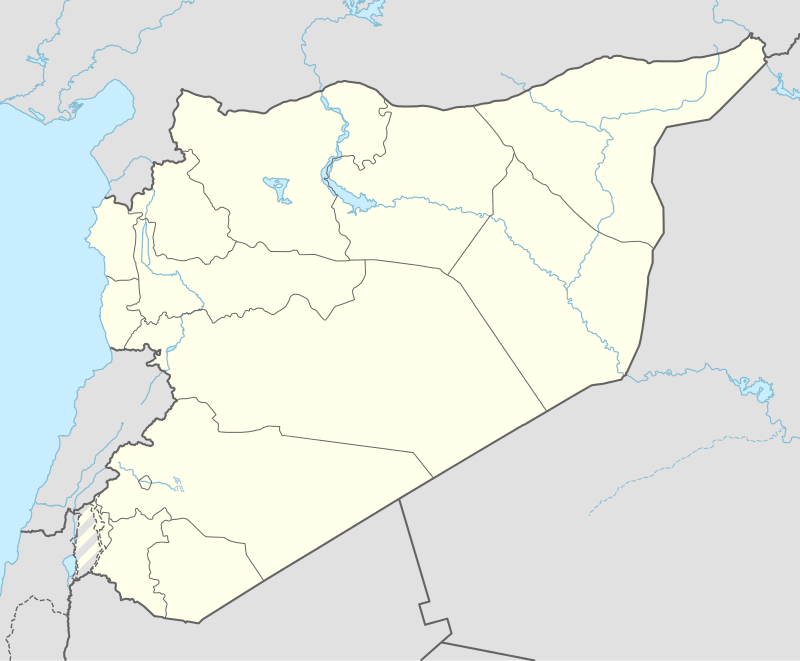Jabiyah
| Arabic: الجابية | |
 Shown within Syria | |
| Alternate name | Tell Jabiyah |
|---|---|
| Location | Syria |
| Region | Daraa Governorate |
| Coordinates | 32°55′8″N 35°59′48″E / 32.91889°N 35.99667°ECoordinates: 32°55′8″N 35°59′48″E / 32.91889°N 35.99667°E |
| Type | Tell |
Jabiyah (Arabic: الجابية) was a place between the Hauran Plain and the Golan Heights, which served as the capital of the Arab Ghassanids; it also had an important political significance in the early Islamic period.
History
The first time that Jabiyah is mentioned was in 520 AD in a Syriac Aramaic letter of Bishop Simeon of Beth Arsham under the name "Gabitha". At the end of the 6th century, Jabiyah served as a meeting place for two Monophysite groups that wanted to settle their religious disputes.[1]
After the Arab conquest of Syria, Jabiyah was the main military camp for Muslims in Syria after the Battle of Yarmouk. The Muslim caliph Umar ibn al-Khattab sought to regulate the distribution of the spoils of war, organize the military government of Syria and determine the wages of fighters. In 17 of Hijra (638 BC), Umar had made a speech called Khutbat al-Jabiyah (Arabic: خطبة الجابية) before a large gathering of generals and the companions in which he announced his decrees.[2] In 639, Umar probably ordered the governor of Syria Muawiyah I to reside in Jabiyah.
At the center of political events Jabiyah emerged again. In 684, when the Umayyad Caliph Muawiya II had died without leaving a suitable heir to the throne; Abd Allah ibn al-Zubayr had proclaimed to be the Caliph in Mecca and several governors in Syria and Palestine showed the allegiance to him. Therefore, Hassan ibn Malik ibn Bahdal al-Kalbi, a tribal leader who was related to the Umayyads, has held a conference in Jabiyah to secure the Umayyad rule and to choose a suitable successor. The result of this congress of Jabiyah, which lasted 40 days, was a compromise formula that would satisfy all the Umayyads. Marwan I was proclaimed as the new caliph to be succeeded by Khalid ibn Yazid.[3]
Jabiyah has lost its importance as a military center of Syria lost until the early 8th century, when Sulayman ibn Abd al-Malik moved his troops to fight the Byzantines in Dabiq to the north of Aleppo.